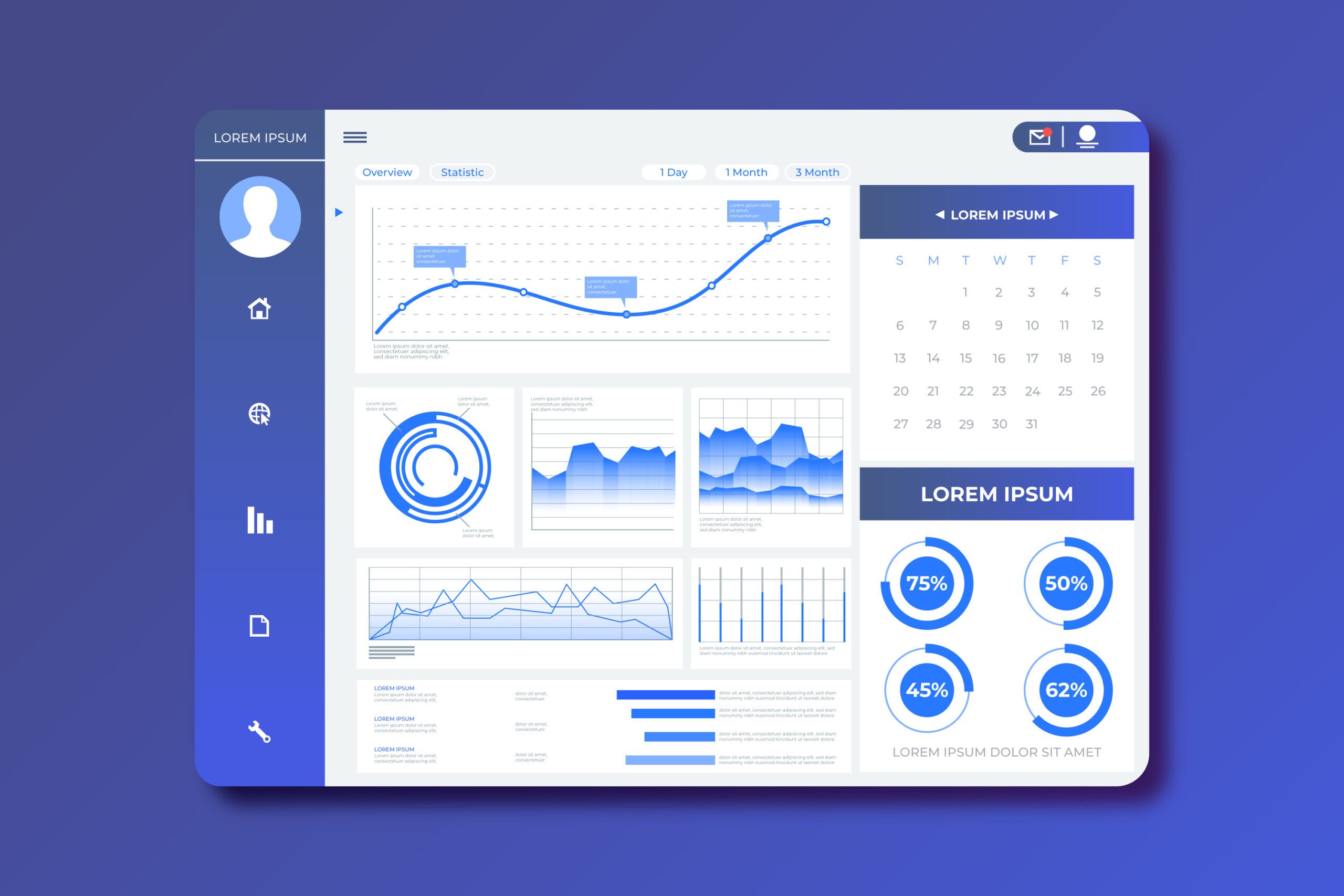No, data science cannot be replaced by AI. While AI relies on algorithms to analyze data, data science involves the entire process of extracting, analyzing, and interpreting data to make informed decisions.
Data science encompasses a broader range of skills and techniques, including statistical analysis, data visualization, and domain expertise, which are essential for understanding complex data sets and deriving actionable insights. AI, on the other hand, focuses on developing algorithms that can perform specific tasks without explicit programming.
Both fields complement each other and are integral to leveraging data for informed decision-making and problem-solving. Integrating AI and data science can enhance the capabilities of both fields, leading to more advanced and impactful applications in various domains, such as healthcare, finance, and marketing. The synergy between AI and data science is driving innovation and driving new opportunities for organizations to harness the power of data in today’s digital age.
The Rise Of Ai And Data Science
As technology continues to advance at an unprecedented pace, two fields that have gained significant prominence are Artificial Intelligence (AI) and Data Science. Both AI and Data Science have revolutionized various industries, offering immense potential in terms of efficiency, automation, and predictive analytics. In this blog post, we will explore the evolving technologies in AI and Data Science and their impact on different industries.
Evolving Technologies
AI and Data Science are constantly evolving, with new technologies being developed to enhance their capabilities. Some of the key technologies that have emerged in recent years include:
- Machine Learning: This technology enables systems to learn from data and improve their performance over time without explicit programming.
- Natural Language Processing (NLP): NLP allows machines to understand and interpret human language, enabling communication and interaction between humans and machines.
- Deep Learning: Deep Learning involves training artificial neural networks to process and analyze vast amounts of data, enabling advanced pattern recognition and decision-making.
- Big Data Analytics: With the exponential growth of data, big data analytics techniques have become essential in extracting valuable insights and making data-driven decisions.
These technologies have significantly contributed to the advancement of AI and Data Science, allowing organizations to leverage data in innovative ways and automate complex tasks.
Impact On Industries
The integration of AI and Data Science has had a profound impact on various industries, revolutionizing traditional processes and paving the way for new opportunities. Here are some examples:
| Industry | Impact |
|---|---|
| Healthcare | AI and Data Science have enabled more accurate diagnoses, personalized treatment plans, and improved patient outcomes. |
| Retail | Through AI-powered recommendation systems and predictive analytics, retailers can offer personalized shopping experiences and optimize inventory management. |
| Finance | AI and Data Science have transformed fraud detection, risk assessment, and algorithmic trading, leading to more efficient and secure financial operations. |
| Manufacturing | By leveraging AI and Data Science, manufacturers can enhance production efficiency, optimize supply chain management, and predict equipment failures. |
These are just a few examples of how AI and Data Science are reshaping industries. The potential for these technologies is vast, and as they continue to evolve, we can expect even more transformative effects.
Defining Data Science And Ai
Data Science and AI are distinct fields, with AI being a subset of Data Science. While AI can automate tasks, Data Science involves deriving insights from data. Data Science cannot be entirely replaced by AI as human interpretation and decision-making remain essential in data analysis.
Data Science and Artificial Intelligence (AI) are two terms that are often used interchangeably, but they are not the same thing. Data Science is the process of extracting insights from data by using statistical and computational methods. On the other hand, AI is a branch of computer science that focuses on creating intelligent machines that can perform tasks that typically require human intelligence, such as visual perception, speech recognition, decision-making, and language translation.
Core Principles Of Data Science
The core principles of Data Science include statistics, machine learning, data visualization, and domain expertise. Statistics is used to analyze data and extract insights, while machine learning is used to build predictive models that can be used to make data-driven decisions. Data visualization is used to present data in a way that is easy to understand, and domain expertise is used to understand the context of the data.
Ai: Capabilities And Limitations
AI has the ability to perform tasks that are typically performed by humans, such as recognizing speech and images, playing games, and making decisions. However, AI also has its limitations. For example, AI can only perform tasks that it has been trained to do, and it cannot generalize to new situations. Additionally, AI can be biased if the data used to train the model is biased. In conclusion, Data Science and AI are two different fields that have their own strengths and limitations. While AI can perform tasks that are typically performed by humans, Data Science is used to extract insights from data and make data-driven decisions. Both fields are important and will continue to play a significant role in shaping the future of technology.
Interplay Between Ai And Data Science
AI complements Data Science, but cannot entirely replace it. Data Science relies on human intuition and creativity, while AI enhances analysis efficiency. The interplay between the two fields strengthens data-driven decision-making processes.
Complementary Forces
AI and Data Science are like two sides of a coin, working together seamlessly.
AI algorithms enhance Data Science capabilities for deeper insights.
Ai In Data Analysis
AI automates data processing, enabling quicker and more accurate analysis.
Data Science then interprets the results to derive meaningful conclusions.
Can Ai Replace Human Data Scientists?
AI has the potential to enhance data science tasks, but it cannot fully replace human data scientists. While AI can process vast amounts of data quickly, human expertise is essential for interpreting results and making strategic decisions based on context and real-world implications.
Automating Routine Tasks
AI has undoubtedly made significant advancements in the field of data science, but can it completely replace human data scientists? One area where AI shows great potential is in automating routine tasks. By leveraging machine learning algorithms, AI can efficiently process large volumes of data, identify patterns, and perform repetitive tasks with precision and speed. This automation can save valuable time and resources, allowing human data scientists to focus on more complex and strategic aspects of their work. However, it is important to note that AI’s ability to automate routine tasks does not render human data scientists obsolete. While AI algorithms can handle repetitive tasks efficiently, they lack the human touch and critical thinking required to interpret and contextualize the data. Human data scientists possess the ability to apply domain knowledge, understand the nuances of the data, and make informed decisions based on their intuition and experience.
The Need For Human Intuition
Data science is not solely about crunching numbers and analyzing patterns; it also involves understanding the context, asking the right questions, and making subjective judgments. This is where human intuition plays a crucial role. Human data scientists can bring a unique perspective to the table, considering factors that may not be explicitly captured in the data. Their ability to think critically, explore alternative hypotheses, and make connections between seemingly unrelated variables adds immense value to the data science process. While AI algorithms can uncover correlations and patterns in the data, they may not always provide the why behind those relationships. Human data scientists can bridge this gap by applying their intuition and expertise to uncover meaningful insights and derive actionable recommendations. By combining the power of AI automation with human intuition, organizations can unlock the full potential of their data and make informed decisions that align with their objectives. In conclusion, while AI has the potential to automate routine tasks in data science, it cannot replace human data scientists entirely. The complementary nature of AI and human intuition allows for a more holistic and accurate analysis of data. By leveraging the strengths of both AI and human data scientists, organizations can maximize the value derived from their data and make informed decisions that drive success.
Case Studies: Ai In Data Science
Artificial Intelligence (AI) and Data Science are two closely related fields that have seen tremendous growth in recent years. While some argue that AI will replace Data Science, others believe that the two can work together to improve outcomes. In this post, we will explore case studies where AI has been used in Data Science, and the lessons learned from both success stories and failures.
Success Stories
One of the most notable success stories of AI in Data Science is the use of machine learning algorithms to identify fraudulent credit card transactions. By analyzing patterns in customer behavior, machine learning algorithms can quickly identify suspicious transactions and flag them for review. This has saved credit card companies millions of dollars in fraudulent charges.
Another success story is the use of AI in predictive maintenance. By analyzing data from sensors on industrial equipment, AI can identify potential problems before they occur, allowing for proactive maintenance and reducing downtime. This has resulted in significant cost savings for companies in industries such as manufacturing and transportation.
Learning From Failures
While there have been many successes, there have also been failures in the use of AI in Data Science. One notable example is the use of AI in healthcare. While AI has the potential to revolutionize healthcare by improving diagnosis and treatment, there have been concerns about the accuracy of AI algorithms. In one study, an AI algorithm was found to be less accurate than human doctors in diagnosing breast cancer. This highlights the importance of rigorous testing and validation before implementing AI in critical applications.
Another failure is the use of AI in hiring. While AI algorithms can quickly screen resumes and identify potential candidates, there have been concerns about bias in the algorithms. In one case, an AI algorithm was found to be biased against women, resulting in fewer female candidates being selected for interviews. This highlights the importance of ethical considerations and diversity in AI development.
The case studies discussed here demonstrate the potential of AI in Data Science, as well as the importance of careful implementation and testing. While AI has the potential to improve outcomes in many areas, it is not a substitute for human expertise and judgment. By working together, AI and Data Science can achieve even greater results.
Future Predictions
The future predictions for the relationship between data science and AI are highly anticipated and have sparked significant discussion. As technology continues to evolve at a rapid pace, it’s essential to explore the potential advancements in AI and the changing role of data scientists.
Advancements In Ai
Artificial Intelligence (AI) is poised to make substantial strides in the near future. Advanced algorithms and machine learning capabilities are expected to enhance AI’s ability to process and analyze vast amounts of data with unprecedented speed and accuracy. Additionally, AI is anticipated to become more adept at identifying complex patterns and making real-time predictions based on dynamic data sets.
Changing Role Of Data Scientists
With the advancement of AI, the role of data scientists is likely to undergo a significant transformation. Instead of focusing on routine data processing tasks, data scientists will be able to leverage AI to automate repetitive processes and gain deeper insights from data. This shift will enable data scientists to allocate more time to strategic decision-making and the development of innovative analytical models.
Preparing For An Ai-driven Future
As technology advances, the question arises: Can Data Science Be Replaced by AI? Let’s delve into how we can prepare for an AI-driven future.
Skills For Future Data Scientists
- Mastering data analysis tools
- Developing machine learning expertise
- Enhancing programming skills
Adapting To Technological Changes
- Stay updated on AI trends
- Embrace automation technologies
- Collaborate with AI experts
Frequently Asked Questions
Will Artificial Intelligence Replace Data Science?
No, Artificial Intelligence will not replace data science. AI complements data science by automating tasks, but data science involves human interpretation and decision-making. Both are essential for deriving insights from data.
Which Is Future Ai Or Data Science?
Both AI and data science have a promising future. While data science deals with collecting and analyzing data to make informed decisions, AI uses algorithms to perform tasks that traditionally require human intelligence. They work together and complement each other to shape the future of technology.
What Are The Jobs That Ai Can’t Replace?
AI cannot replace jobs that require creativity, emotional intelligence, complex problem-solving, and critical thinking. These roles include artists, therapists, strategists, scientists, and entrepreneurs. AI may enhance these jobs, but human skills like empathy, innovation, and adaptability are irreplaceable.
Can I Move From Data Science To Artificial Intelligence?
Yes, transitioning from data science to Artificial Intelligence is possible with relevant skills and training.
Conclusion
While AI has made significant advancements in the field of data science, it cannot fully replace the expertise and insights provided by human data scientists. Data science is a multidisciplinary field that requires critical thinking, creativity, and domain knowledge. Although AI can automate certain tasks and enhance efficiency, it still relies on human interpretation and decision-making to derive meaningful insights from data.
The collaboration between AI and human data scientists is crucial for leveraging the full potential of data science in solving complex problems and driving innovation.







